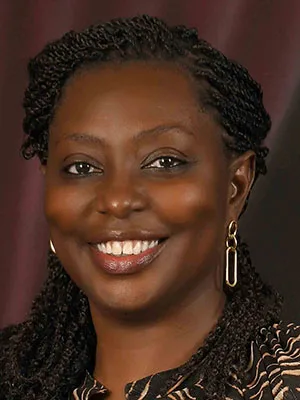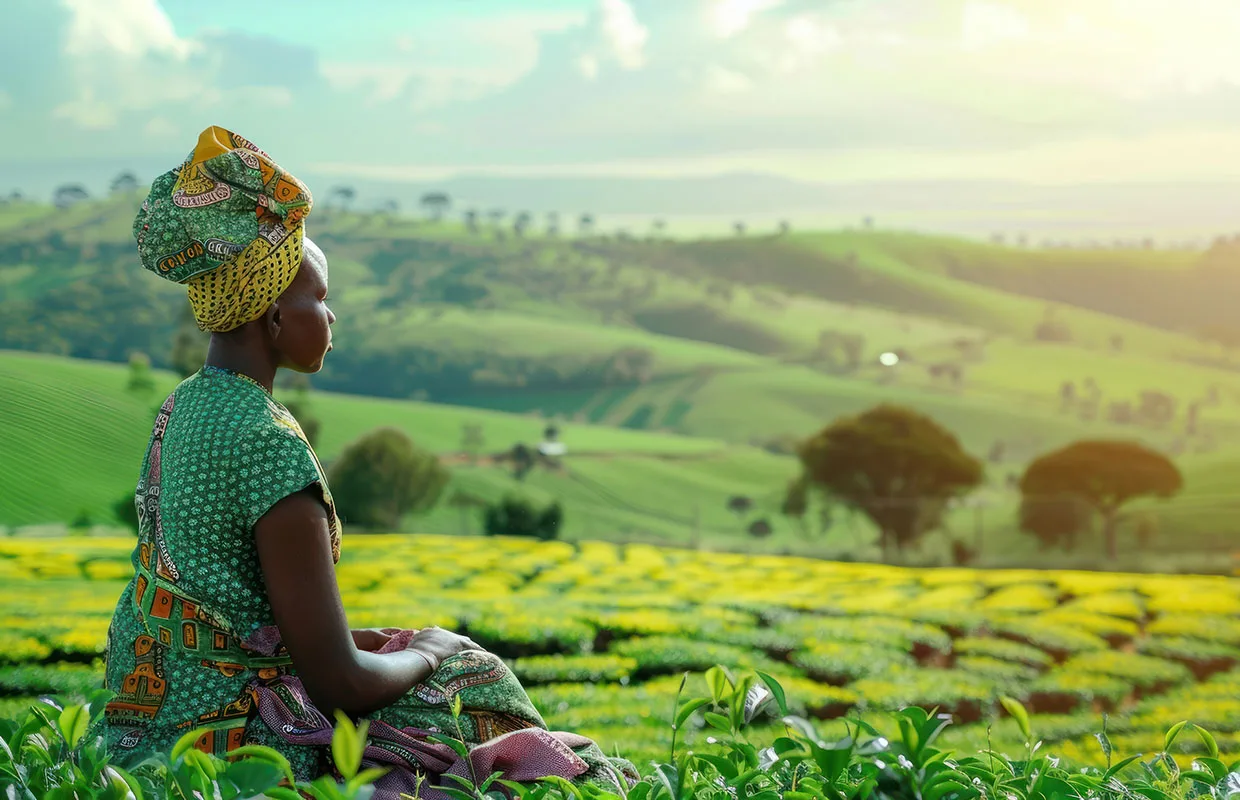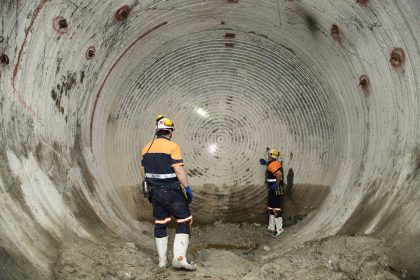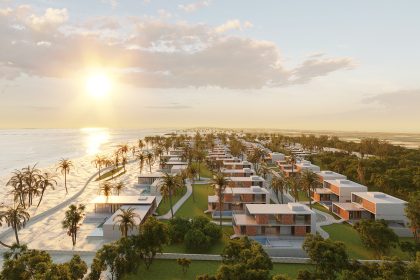RESTORING AFRICA’S LANDSCAPES WITH INNOVATION AND COMMUNITY
At Justdiggit, our mission is rooted in restoring degraded landscapes across sub-Saharan Africa to promote biodiversity, improve livelihoods, and combat climate change.
Land degradation is a critical issue in the region, where millions of hectares (ha) have become barren due to unsustainable agricultural practices, overgrazing, and the impacts of climate change. This degradation threatens not only the environment, but also the livelihoods of the 350 million people who depend
on the land.
We have developed scalable and practical solutions to restore these landscapes, bringing together ancient techniques, modern technology, and community collaboration. Our efforts have already rejuvenated 450,000ha of land, but this is just the beginning.
NATURE-BASED SOLUTIONS
One of our core techniques is the use of semi-circular bunds, or ‘Earth Smiles’. These simple structures capture rainwater, allowing dormant seeds in the soil to germinate and native vegetation to return. This approach is low-cost, effective, and relies on the natural resilience of ecosystems to recover in the right conditions.
The benefits of regreening extend beyond just the environment. Restored land improves water retention, increases crop yields, and provides better grazing opportunities for livestock, positively impacting local communities directly.
However, achieving long-term success requires more than technical solutions; it depends on the active participation of those who live and work on the land.

EMPOWERING COMMUNITIES WITH KNOWLEDGE
Empowering local communities, farmers, and pastoralists is central to our regreening strategy. Sustainable land restoration is only possible when these groups have the knowledge and understanding to manage the land effectively. As such, we’ve embraced digital tools as a way to reach more people, faster.
Justdiggit’s Kijani app, launched in Tanzania earlier this year, exemplifies this approach. It provides farmers with location-specific advice through video-based courses on topics like soil health, water management, and boosting crop yields, sharing guidance tailored to each farmer’s land type and condition. By offering the app in both Swahili and English, we ensure accessibility for a wide range of users, with plans to expand to further languages in the future.
We’re also developing artificial intelligence (AI)-driven tools to provide more personalised support, ensuring every farmer receives guidance tailored to their specific needs.
HARNESSING TECHNOLOGY FOR SCALABILITY
Technology also plays a critical role in monitoring and scaling Justdiggit’s efforts. We use satellite imagery to track the progress of regreened areas, measure water retention, and assess carbon sequestration. This approach not only validates the impact of our work and informs evidence-based decisions on where to focus future efforts but also reduces emissions by eliminating the need for on-site monitoring.
To further enhance scalability, we’re integrating machine learning (ML) into our monitoring processes. By analysing satellite data, we can identify and count Earth Smiles remotely, enabling us to manage restoration sites more efficiently.
Our digital Greener.LAND platform is another key initiative. Designed for land restoration practitioners, it serves as a hub for best practices and technical insights. By sharing our knowledge and resources, we aim to empower other organisations to replicate our methods and amplify the collective impact on degraded landscapes.
FACING CHALLENGES AND LOOKING AHEAD
Of course, restoring degraded land is not without its challenges. Rural connectivity, funding limitations, and the need for long-term behavioural change are all obstacles that we encounter on a regular basis. However, by collaborating with local communities, governments, and global partners, we continue to find innovative ways to overcome these challenges.
Our vision for the future is ambitious. We aim to expand our reach to millions of ha, creating a greener, more biodiverse continent. To achieve this, we will further integrate technology into our restoration efforts, combining satellite monitoring with on-the-ground insights from digital tools. This interconnected system will make it easier to measure progress, adapt to new challenges, and share our methods with others.
BUILDING A GREENER, SUSTAINABLE FUTURE
The scale of land degradation across Africa is immense, but so is the potential for restoration. By combining traditional knowledge, digital innovation, and community empowerment, we are proving that degraded landscapes can be brought back to life. Our work not only restores ecosystems but also strengthens the resilience of communities and contributes to global climate goals.
We believe in the power of collaboration to drive meaningful change. By working together across sectors and borders, we can create a future where sustainable practices are embedded into everyday life, benefiting people and the planet alike.
Nature-based solutions hold the key to addressing the climate crisis, and technology is amplifying their reach and effectiveness. With continued investment, innovation, and collaboration, a greener, more equitable world is within our grasp. At Justdiggit, we are proud to play our part in making this vision a reality.































